Resolution 71 of the Politburo on breakthroughs in education and training development clearly states: Review and evaluate the implementation of the General Education Program; ensure the provision of a unified set of textbooks nationwide, and strive to provide free textbooks to all students by 2030.
A set of books will save money
Before 2020, Vietnam used a common set of textbooks. At the end of 2018, the Ministry of Education and Training issued the 2018 General Education Program (CT 2018) - one program, many sets of textbooks.
From the 2020-2021 school year, new textbooks will be used for grade 1. At this time, the whole country has 5 sets of books approved and circulated on the market including: Creative Horizon, Connecting Knowledge with Life, Learning Together to Develop Capacity, For Equality and Democracy in Education, Canh Dieu.
In 2021, the Ministry of Education and Training approved the list of textbooks with 3 sets: Canh Dieu, Connecting knowledge with life and Creative horizons.
Currently, the above 3 textbooks are still in use, of which Creative Horizon has version 1 and version 2.
Associate Professor Nguyen Kim Hong, former Principal of Ho Chi Minh City University of Education, acknowledged that Resolution 29-NQ/TW and Resolution 88/2019/QH14 on curriculum and textbook innovation have created a step change in general education. In particular, the biggest innovation is to change the approach to teaching and learning towards developing the capacity of teachers and learners. During the innovation process, Vietnam has compiled many sets of textbooks for each subject, with English alone having the largest number of learning materials.
But it cannot be denied that in recent times there have been many controversies surrounding the compilation of many sets of textbooks. Supporters argue that teachers and students have many choices of teaching and learning materials for themselves. Opponents argue that choosing textbooks is not the job of teachers and students but of administrators. Book publishers need to be fair and consider: How much difference there really is between sets of textbooks, is it worth choosing one set or another? Using many sets of textbooks is really costly.
Associate Professor Nguyen Kim Hong believes that the policy of the entire country using one set of textbooks, and at the same time the state will provide textbooks for all students as stated in Resolution 71, is appropriate. At least, this is useful in saving costs for education, especially from the point of view of those who believe that there is very little difference in the current sets of textbooks for each subject.
"If there is a common set of textbooks used in schools for each level of education nationwide, the cost of compiling documents and printing will be lower and more reasonable," Associate Professor Hong said.
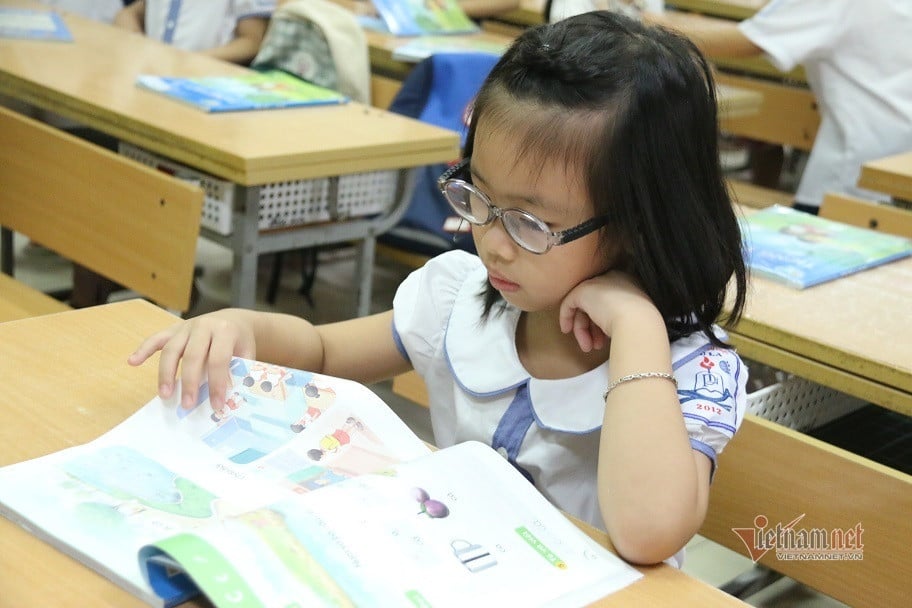
However, according to him, opponents will argue that if there is only one set of textbooks, teachers cannot be creative because they do not have the right to choose. But the 2018 Program has unified the overall program and the subject program, in which the subject program has specified the requirements to be achieved for each lesson, each topic, each new content, teachers will choose the materials to teach. Textbooks are not the only materials serving teaching and learning in general schools.
What needs to be done to compile a new set of excellent textbooks?
According to Mr. Nguyen Van Ngai, former Deputy Director of the Department of Education and Training of Ho Chi Minh City, there have been many opinions that the Ministry of Education and Training should compile a set of textbooks. Resolution 71 of the Politburo stated that it is necessary to ensure the provision of a unified set of textbooks nationwide, so the current issue is how to compile a new set of textbooks to have the best quality. He said that it is necessary to evaluate the advantages and disadvantages of the previous sets of textbooks, so that the new set of textbooks can promote the advantages and eliminate the limitations.
Associate Professor Nguyen Kim Hong acknowledged that before 1975 in South Vietnam, many teachers had compiled their own teaching materials. In many international schools and schools with foreign elements today, materials are still compiled for students. This shows the role of schools and teachers in developing teaching and learning materials for themselves and their students. In many classes, if there is a difference in academic ability, teachers will compile materials for each group. Thus, teachers are the ones who decide on teaching and learning in the classroom.
According to Associate Professor Nguyen Kim Hong, in many developed countries, teachers are involved in the curriculum development team. They then design their own teaching plans (frameworks) for their school subjects, which are evaluated and funded based on quality.
Currently, Vietnam has many textbooks that have been approved and put into schools, which are valuable sources of knowledge and provide experience for those participating in compiling books according to Resolution 71 to refer to.
“Thus, new authors, when 'standing on the shoulders of giants', will have more experience in writing textbooks in the spirit of Resolution 71. Knowing how to respect previous compilers, they will create success,” Associate Professor Hong said.
Former Principal of Ho Chi Minh City University of Education proposed 4 ideas:
Firstly, in selecting the authors of the books, the Ministry of Education and Training should ask the 34 provinces/cities to nominate the best teachers with experience in teaching general education. It is also possible to choose authors who have written books in previous years, and scientists to participate in the compilation. The compilation will be "simultaneously at all levels and grades" in the shortest possible time. Short in time but quality must be put first. If possible, a new set of common textbooks should be tested.
Second, the fee for writing the book should be paid in one go, with the author being responsible for editing for reprints. Printing should be done in a public bidding process, choosing reputable units, quality products and reasonable prices. Textbooks should be published in both print and electronic forms.
Third, maintain or supplement the Review Board if necessary; at the same time, continue to use the experienced editorial team from previous compilations. After review, it is necessary to seek wide opinions from teachers, students and society before official release.
Finally, it is necessary to honor the authors who have participated in compiling textbooks in the past. Although the number is not small, this is a necessary work to recognize their contributions. In addition, it is possible to exploit the existing e-book series for free in online form.
Source: https://vietnamnet.vn/it-khac-biet-trong-cac-bo-sach-giao-khoa-hien-nay-ca-nuoc-dung-1-bo-la-phu-hop-2441296.html




![[Photo] Prime Minister Pham Minh Chinh chairs the first meeting of the Central Steering Committee on housing policy and real estate market](https://vphoto.vietnam.vn/thumb/1200x675/vietnam/resource/IMAGE/2025/9/22/c0f42b88c6284975b4bcfcf5b17656e7)





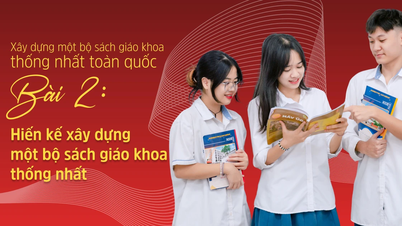

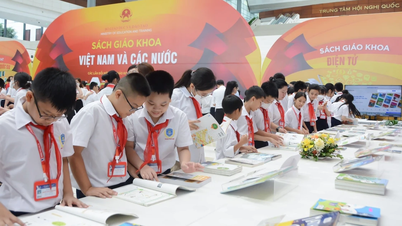
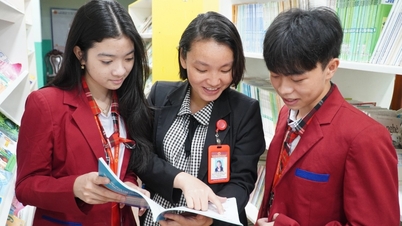






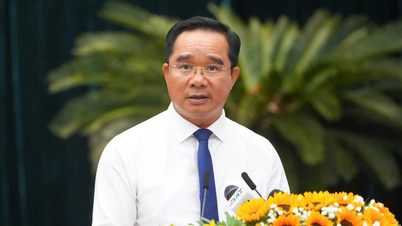
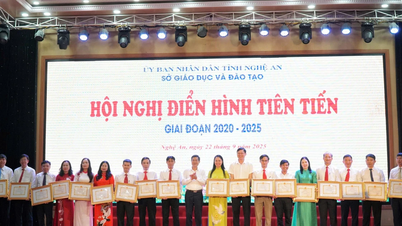







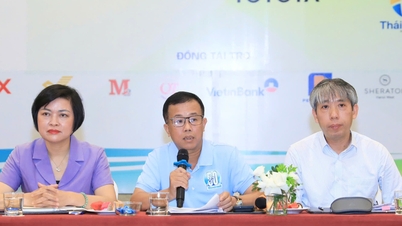





![[Photo] General Secretary To Lam presents the First Class Labor Medal to the Vietnam National Energy and Industry Group](https://vphoto.vietnam.vn/thumb/1200x675/vietnam/resource/IMAGE/2025/9/21/0ad2d50e1c274a55a3736500c5f262e5)








































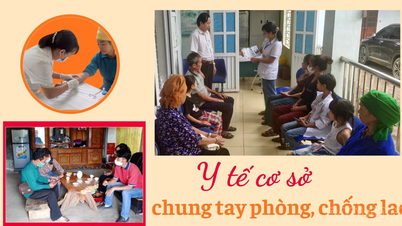
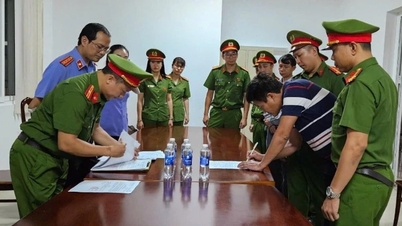

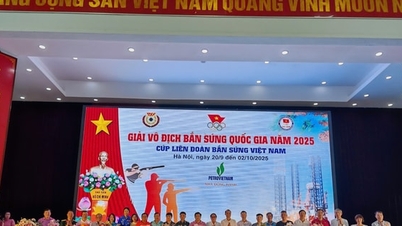


















Comment (0)